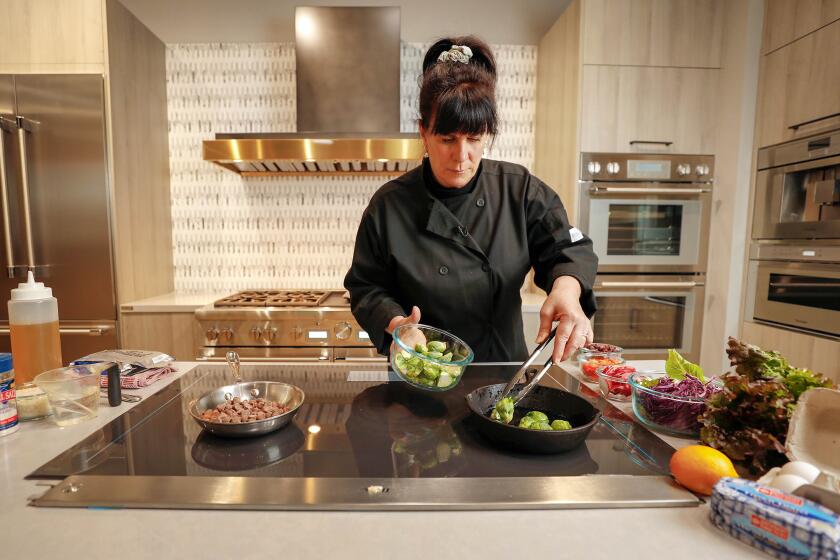SoCalGas faces $10-million fine for fighting climate action
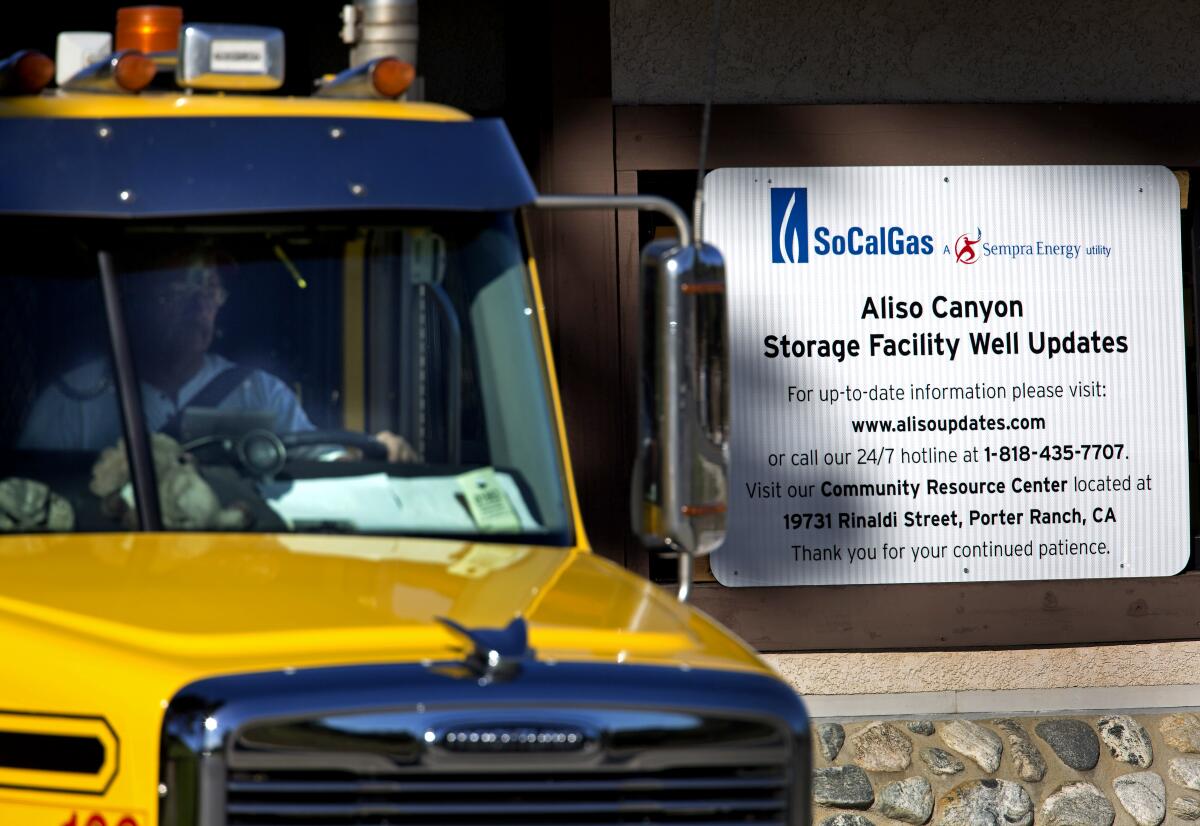
Shareholders of the nation’s largest natural gas utility could be forced to pay nearly $10 million after using customer money to fight public policies that could slow the climate crisis.
California officials are poised to levy the fine on Southern California Gas Co., which sells natural gas to millions of homes and businesses for heating and cooking, and to power plant operators for electricity generation. The fossil fuel is a major source of the heat-trapping carbon emissions that have caused worsening heat waves, wildfires, droughts and floods, and that are driving many species to extinction.
For the record:
6:31 p.m. Feb. 4, 2022A previous version of this story said the decision was written by the California Public Utilities Commission’s chief administrative law judge, Anne Simon. It was written by administrative law judge Valerie Kao.
SoCalGas has engaged in a sweeping campaign to block clean energy measures that threaten its business model, including local bans on gas hookups in new housing and statewide efforts to encourage construction of all-electric homes.
The $9.8-million penalty was determined by an administrative law judge at the California Public Utilities Commission. It addresses a narrow set of actions that SoCalGas has taken since May 2018, when the commission ordered the company to stop using customer money to fund its energy efficiency advocacy work — an order the gas utility allegedly violated.
“Such insolence must be accorded a high degree of severity,” administrative law judge Valerie Kao wrote in her decision, which was released Thursday.
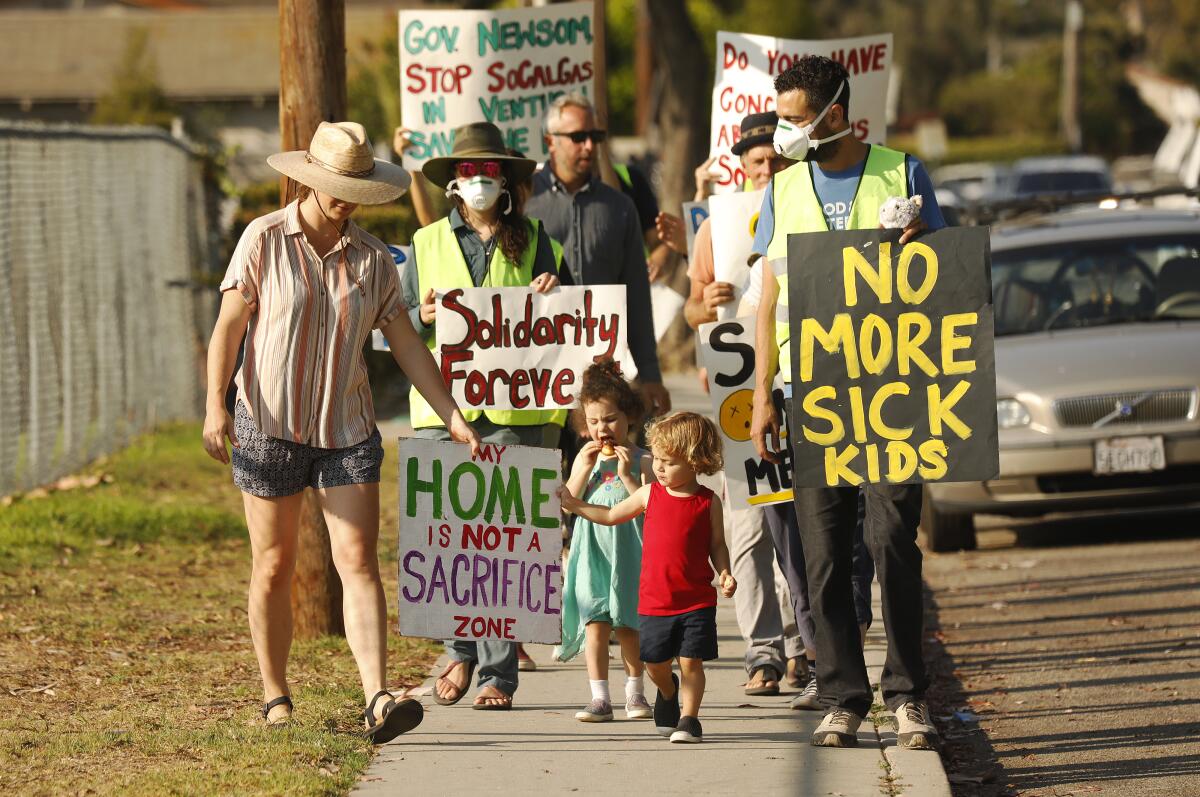
SoCalGas now has 30 days to appeal, which would require the five members of the utilities commission — who are appointed by Gov. Gavin Newsom — to vote on the penalty. If no appeal is filed, no vote is needed.
The gas company has previously denied any wrongdoing, arguing that it’s looking out for consumers by trying to keep energy costs from rising, and that it can play a crucial role in fighting climate change by supplying cleaner fuels such as renewable gas and hydrogen.
“We are in receipt of the decision and are reviewing it. We expect and look forward to further engagement on this issue,” SoCalGas spokesperson Christine Detz said in an email.
The proposed fine is far less than the $124 million recommended by the Public Advocates Office, an independent arm of the utilities commission that works to protect ratepayers.
Your guide to our clean energy future
Get our Boiling Point newsletter for the latest on the power sector, water wars and more — and what they mean for California.
You may occasionally receive promotional content from the Los Angeles Times.
But while climate activists were disappointed the number wasn’t higher, it’s still “really heartening that the commission is showing that it understands that penalties are necessary to deter this kind of malfeasance from SoCalGas,” said Sara Gersen, a senior attorney at the nonprofit law firm Earthjustice whose clients include the Sierra Club.
“These efficiency standards that SoCalGas is fighting tooth and nail are absolutely vital for us to meet our climate goals,” she said.
SoCalGas, a subsidiary of fossil fuel giant Sempra Energy, can spend shareholder money however it wants — lobbying against climate rules, for instance. But as a state-sanctioned monopoly, it is required to spend ratepayer money strictly on programs that benefit ratepayers, such as safety upgrades.
California utility companies are allowed to spend ratepayer money to try to influence policy as long as they’re advocating for higher efficiency standards for buildings and appliances. But after the Public Advocates Office found that SoCalGas had worked alongside industry trade groups to try to block a federal efficiency standard for gas furnaces, the utilities commission ordered the company to stop conducting any “codes and standards” advocacy backed by customer money.
SoCalGas didn’t fully comply, the commission now says, continuing to send ratepayer-funded employees to meetings where state and federal policy was discussed in the months following the May 2018 order.
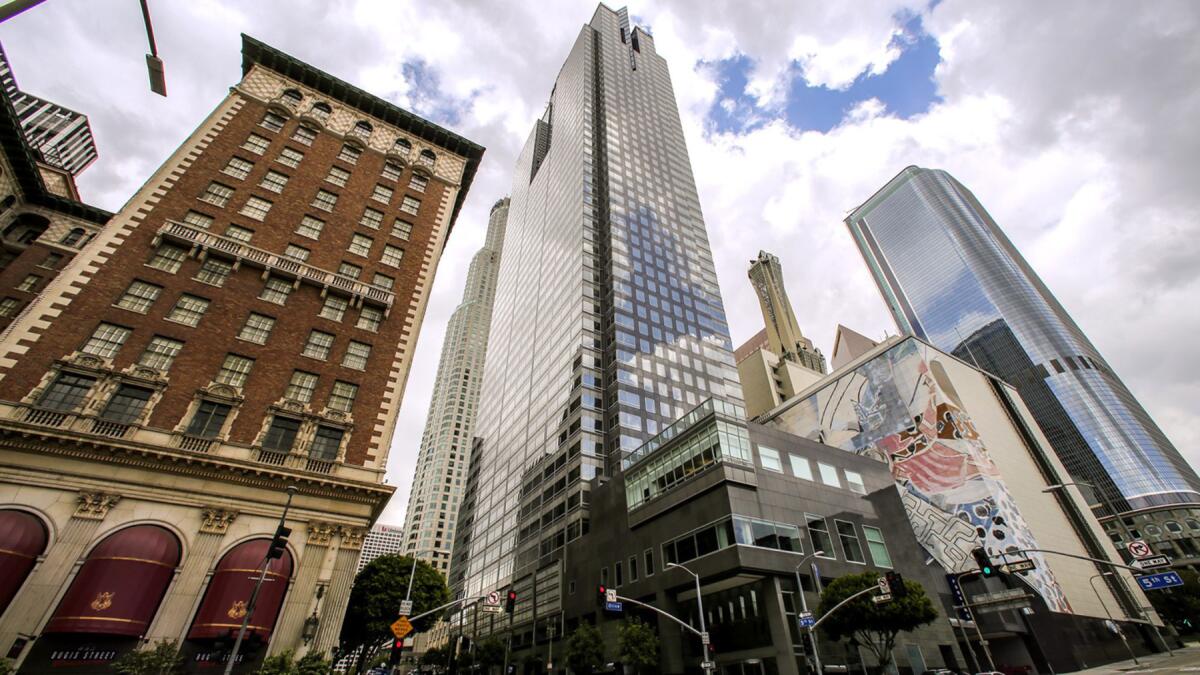
Later, SoCalGas worked to influence California’s new building code, again backed by customer funds.
Climate activists hoped the state would ban gas hookups in new homes and businesses, following the lead of dozens of cities that had required or encouraged electric heat pumps and induction cooktops. SoCalGas pushed back, arguing in written comments that the state “should maintain a diverse portfolio of energy options” and seeking to cast doubt on research showing gas stoves and other appliances can spew unhealthy air pollution into homes.
“They were busy reviving the tobacco industry’s playbook denying the public health research on the threats of using their product,” Gersen said.
California sparked a national push to ban gas lines into homes. Its success hinges on persuading home cooks the gas stove is obsolete.
The gas company has defended its efforts, arguing in a regulatory filing that the Public Advocates Office and the Sierra Club — which joined forces to press for penalties — were interpreting the commission’s order prohibiting ratepayer-funded advocacy too broadly.
SoCalGas also suggested the commission would be violating the company’s 1st Amendment right to free speech by penalizing it for trying to influence the state building code update. State officials ultimately encouraged but didn’t require new buildings to be all-electric.
“This is a clear attempt to punish SoCalGas for expressing viewpoints ... that are different than [the Public Advocates Office’s] and Sierra Club’s, including on issues such as cost-effectiveness, customer affordability, and opportunities for the State to meet its longer-term decarbonization goals,” the gas company wrote in another filing.
The company also addressed its efforts to downplay research showing negative health consequences from gas appliances, writing: “It is in the public’s interest, including SoCalGas’s ratepayers, to have accurate and complete information on indoor air quality.”
The commission wasn’t impressed by the gas company’s defenses.
The agency’s decision states that the utility’s arguments for why it shouldn’t be penalized “demonstrate profound, brazen disrespect for the Commission’s authority.” The company’s conduct “has exacerbated its wrongdoing because its failure to comply has become a series of offenses to Commission authority,” wrote Kao, the administrative law judge.
The vast majority of the fine — $9.6 million — would penalize SoCalGas for “harm to regulatory process,” including the company’s failure to produce information demanded by the Public Advocates Office. The rest would consist of a series of smaller penalties for specific violations of the commission’s order requiring the company to cease ratepayer-funded advocacy.
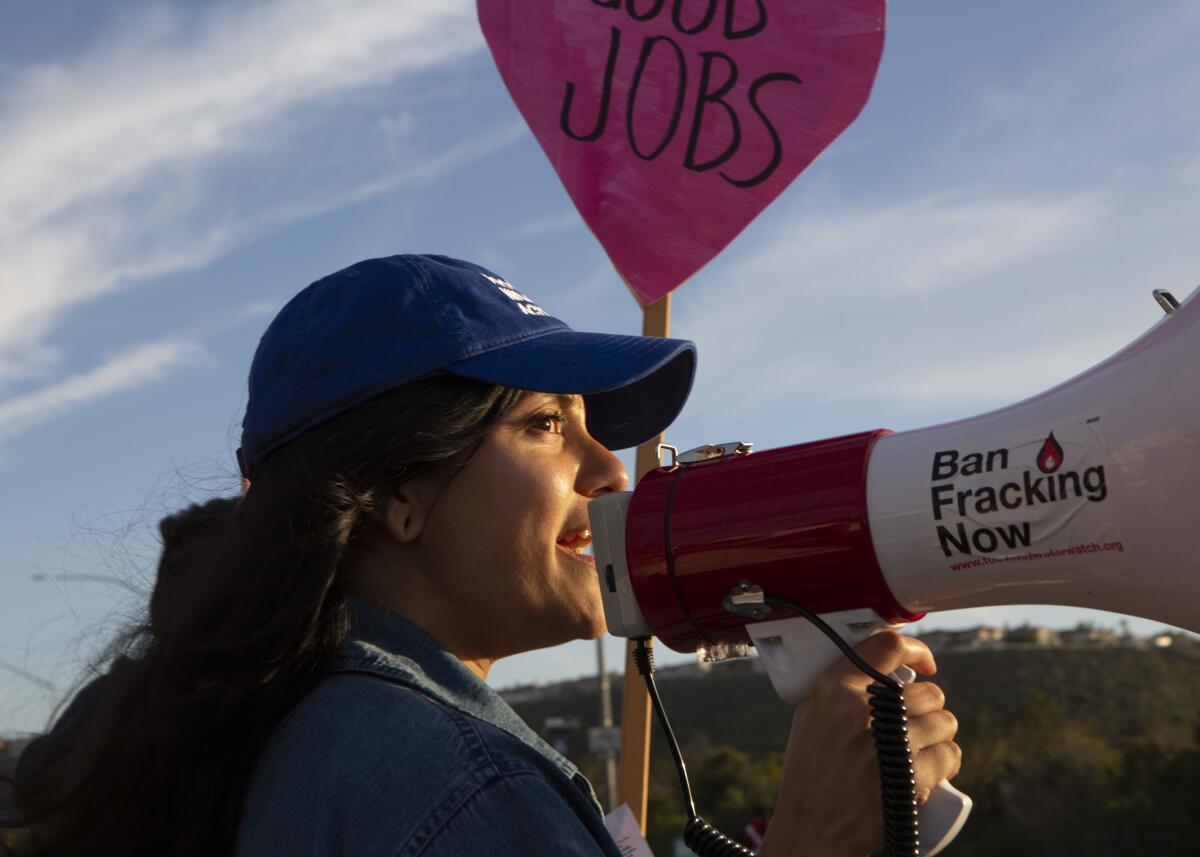
This isn’t the first time SoCalGas has clashed with climate activists and consumer watchdogs over its climate-related stances.
The Public Advocates Office and the Sierra Club have also urged the commission to fine the gas company $255 million over a separate series of ratepayer-funded actions, including efforts to block rules requiring more efficient water heaters and furnaces and advocacy against local building codes that limit gas hookups. A SoCalGas spokesperson responded that the utility “should not be discouraged from raising concerns about the affordability of proposed rules that would disproportionately drive up costs for our customers.”
“SoCalGas has been and will continue to be a partner in reaching California’s ambitious climate goals,” SoCalGas wrote at the time.
The Public Utilities Commission ultimately ordered the gas company to refund some money to customers but declined to issue any penalty, let alone $255 million. The Public Advocates Office and the Sierra Club are appealing that decision.
SoCalGas also faced criticism for using ratepayer funds to help create a self-styled grass-roots advocacy group called Californians for Balanced Energy Solutions, which supported the company’s successful campaign to persuade city and county government officials not to support local gas bans. SoCalGas later agreed to charge shareholders for its contributions to the group instead.
Homes at Tejon Ranch will have electric heat pumps and induction stoves. But what about all those car trips?
Meanwhile, SoCalGas faces continued calls to shut down gas storage fields that critics say threaten the health of nearby communities, including the Aliso Canyon facility in the San Fernando Valley and the Playa del Rey facility on L.A.’s Westside.
Clean energy advocates say Newsom has failed to live up to his promise to expedite closure of the Aliso Canyon storage field, which sprung a record-breaking methane leak in 2015. Just this week, SoCalGas settled a lawsuit stemming from the Aliso Canyon leak, agreeing to monitor levels of benzene, a cancer-causing chemical, in the air breathed by Porter Ranch residents.
The Times also reported last year that the oil giant Halliburton — which was hired by SoCalGas to get the Aliso Canyon blowout under control — is claiming that key evidence dealing with its failure to stop the leak can’t be examined by state investigators because the only copies were on a single computer that was stolen out of a pickup truck.
More to Read
Inside the business of entertainment
The Wide Shot brings you news, analysis and insights on everything from streaming wars to production — and what it all means for the future.
You may occasionally receive promotional content from the Los Angeles Times.
